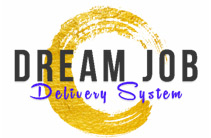Before you go networking, asking for connections to hiring managers, and even interviewing, do this critical and worth-the-effort step. It could be just the one step remaining to make you the stand-out candidate.
When developing your job search strategy, obviously it is important to be honest with yourself about what might not be quite what the hiring manager is looking for–the lemons. If you can turn what might be considered a job search liability into an asset, you’ll get much further in your job search networking and interviewing. And land your new job that much faster.
Here’s how you “line up the lemons” so even those things that other people would consider liabilities can be converted into assets. In fact, they can be converted into things that make all other candidates fade into the background–all because you turned a lemon into something the hiring manager really wants.
Maybe you’ve been in several industries rather than focusing in just one. Or maybe you’ve had several job changes in the last few years. Or maybe you’ve had one job for the last 15 years. Maybe you’re missing one piece of the requirements, e.g., you haven’t been responsible for a P&L which the job clearly requires.
It’s critical to develop a clear compelling statement that explains how whatever it is on your resume that could be considered a lemon is actually an advantage to the company who hires you. As a recruiter and frequent (!) job seeker, I know that if you don’t do this, the other person won’t be able to do it either. And it’s just that much easier to take a pass on you as a candidate. Harsh, but probably true most of the time.
So this isn’t about calling anything about you a liability. It’s about being strategic when you prepare. If there is something in the list of requirements you’re missing, figure out what you have instead that more than makes up for that missing piece. Or, as I did above, explain why the fact you DON’T have that part of the requirements could be a benefit to the hiring manager.
In working with great executives in transition, I’ve found they are often quick to point out where they may have a liability in terms of getting the job. The next step can be more difficult.
Translating that to an asset that GETS you the job is the next step. It’s really in your best interest for you to do that translation. If you don’t the hiring manager and/recruiter either won’t do it or will do it in a way that doesn’t help you as a candidate.
Also in my experience very few candidates have taken the time to do this “positioning” of themselves as a candidate. If you do, you will really differentiate yourself from the crowd.
Let me give you an example. When I was interviewing for the Director of Recruiting for Deloitte & Touche, I had only about six months of recruiting experience. My previous experience was in software marketing. I learned from the recruiter that everyone else who interviewed had 10+ years of recruiting experience.
I had been recommended to her through networking, so she was willing to take a chance by presenting me. Plus she and I had developed a really nice relationship during the course of her interviewing me. (More later on how to create relationships with recruiters that put you at the head of the line.)
So I knew my own “lemon” was my huge lack of experience as a recruiter. I needed to make sure the Hiring Manager saw that lack of experience as a real asset to him.
During the interview I asked him to share his vision for the group and how he had been so successful so quickly. It was an amazing thing he had accomplished, and his enthusiasm for going even further was clear.
Also clear to me was that he needed creative recruiting strategies that went beyond same-old-same-old if he was going to recruit the large number of people he needed to be successful.
So that’s exactly what I told him. I said that if he hired someone with several years of experience, they would do what they had already learned how to do. That would be, in my estimation, the kiss of death for his vision.
With my marketing background and no perceived notions of what could or could not be accomplished in recruiting (because after all I had almost no experience!), I would be strategic and creative. That would be what he would need.
Happy ending: he agreed!
If you have a lemon that needs converting, give me a call or email me. I’m really good at this and would love to help you with it–my gift to your job search!
